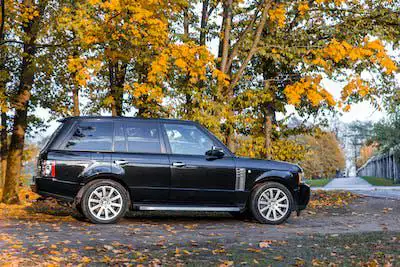The Allure of the Dealership
Dealerships offer a smoother, more streamlined experience. They have a wide selection of vehicles on their lot, allowing you to compare different makes and models side-by-side. Plus, they handle the nitty-gritty paperwork and legalities of the sale, leaving you free to focus on finding the perfect car.
Peace of mind is another major perk. Most dealerships offer certified pre-owned (CPO) vehicles, which have undergone rigorous inspections and reconditioning, often backed by extended warranties. Additionally, dealerships are bound by regulations and consumer protection laws, offering recourse if something goes wrong with the car shortly after purchase.
Financing is often easier through dealerships, too. They have established relationships with lenders and can secure competitive interest rates for qualified buyers. This can simplify the process and potentially save you money in the long run.
However, convenience and security come at a price. Dealerships typically mark up the cost of used cars, factoring in overhead costs, reconditioning, and profit margins. This means you'll likely pay more for the same car compared to a private seller.
Navigating the Private Seller Maze
Buying from a private seller can be a more daunting but potentially rewarding experience. The legwork falls squarely on your shoulders, requiring research, careful inspection, and negotiation. But if you're willing to put in the effort, you can snag a great deal on a well-maintained car.
Lower prices are the main draw. Private sellers are not burdened by dealership overhead, so they can offer their cars at significantly lower prices. This can be particularly beneficial if you're on a tight budget or looking for a specific, older model car that dealerships might not carry.
Direct communication with the previous owner can also be valuable. They can provide insights into the car's history, driving habits, and any quirks or potential issues. This can help you make a more informed decision about the purchase.
However, the buyer beware principle applies heavily in private sales. You'll need to be diligent in inspecting the car yourself or hiring a mechanic for a pre-purchase inspection. Be wary of hidden problems, tampered odometers, and salvaged titles.
Financing can be more challenging with private sellers. You'll likely need to secure a loan from your bank or credit union and handle the title transfer and registration yourself.
Making the Right Choice
Ultimately, the decision of whether to buy from a dealership or a private seller comes down to a personal assessment of your needs and priorities. Consider these factors:
Budget: If you have a strict budget, a private seller might be your best bet. However, factor in the potential costs of repairs and unexpected issues.
Knowledge and experience: Are you comfortable inspecting cars yourself, or do you need the peace of mind of a pre-purchase inspection and warranty?
Time and effort: Dealerships offer a one-stop shop experience, while private sales require more legwork and research.
Risk tolerance: Are you comfortable with the potential risks of buying a car "as-is" from a private seller?
Tips for Success
No matter which route you choose, here are some tips for a successful used car purchase:
Do your research: Know the market value of the car you're interested in, using resources like Kelley Blue Book or Edmunds.
Get a pre-purchase inspection: This is crucial, whether you're buying from a dealer or a private seller.
Ask questions: Don't be afraid to ask the seller about the car's history, maintenance records, and any known issues.
Negotiate: Don't be afraid to haggle on the price, especially with private sellers.
Get everything in writing: This includes the purchase agreement, car history report, and any warranties.
Trust your gut: If something feels off about the car or the seller, walk away.
Buying a used car can be a daunting task, but with careful planning and research, you can find a great deal that meets your needs and budget. Whether you choose the convenience and security of a dealership or the potential savings of a private

